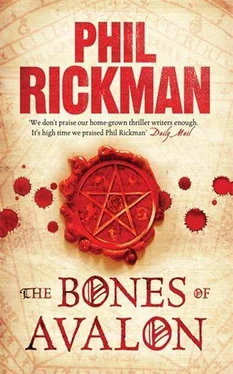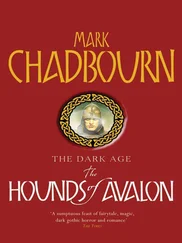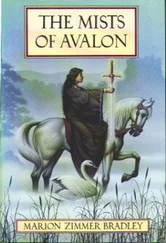Ormond House - The Bones of Avalon
Здесь есть возможность читать онлайн «Ormond House - The Bones of Avalon» весь текст электронной книги совершенно бесплатно (целиком полную версию без сокращений). В некоторых случаях можно слушать аудио, скачать через торрент в формате fb2 и присутствует краткое содержание. Жанр: Исторический детектив, на английском языке. Описание произведения, (предисловие) а так же отзывы посетителей доступны на портале библиотеки ЛибКат.
- Название:The Bones of Avalon
- Автор:
- Жанр:
- Год:неизвестен
- ISBN:нет данных
- Рейтинг книги:4 / 5. Голосов: 1
-
Избранное:Добавить в избранное
- Отзывы:
-
Ваша оценка:
- 80
- 1
- 2
- 3
- 4
- 5
The Bones of Avalon: краткое содержание, описание и аннотация
Предлагаем к чтению аннотацию, описание, краткое содержание или предисловие (зависит от того, что написал сам автор книги «The Bones of Avalon»). Если вы не нашли необходимую информацию о книге — напишите в комментариях, мы постараемся отыскать её.
The Bones of Avalon — читать онлайн бесплатно полную книгу (весь текст) целиком
Ниже представлен текст книги, разбитый по страницам. Система сохранения места последней прочитанной страницы, позволяет с удобством читать онлайн бесплатно книгу «The Bones of Avalon», без необходимости каждый раз заново искать на чём Вы остановились. Поставьте закладку, и сможете в любой момент перейти на страницу, на которой закончили чтение.
Интервал:
Закладка:
What if he had looked into the summoning eyes of death last night?
What if he died?
I gripped the window sill.
And what if he did not die? When he was over this sickness, should I remind him of what he’d said this morning from the dark pool of his delirium?
And, you see, the worst of it, the worst was this: with all those grasping, foreign would-be suitors knocking shoulders with each other for prime position in the queue, there could indeed have been no safer and more capable consort for Queen Elizabeth… than my friend Robert Dudley.
I knew it. William Cecil would, at the heart of him, know it, too.
And of course poor Amy would know it.
Standing, morose, at the upstairs window of this one-time pilgrim inn, I realised I’d been looking down, for the first time, into the daylit town of Glastonbury. Watching it going about its morning business, the familiar circle-dance of laden carts, goodwives with their baskets, children, horses and dogs, the flutter of voices in the air.
Unaware, at first, because of the graveness of my pervading thoughts, of what was so wrong here. Just as they seemed unaware, the goodfolk of Glastonbury, of what still was raised above them, in all its empty splendour.
This was not Bristol, nor Bath. Glastonbury itself was hardly bigger than a village, an untidy huddle with few buildings of any age and none at all on the other side of the street. Only the abbey wall and, beyond it, the golden shell of what had been the finest, wealthiest ecclesiastical building in the west of England.
Two decades, now, since its forty monks had been displaced, their abbot tortured, killed and quartered.
What can I say of this? I would not deny the case for reform, or at least throwing off the papal yoke. But the destruction of so many noble buildings with the consequent dispersal of treasures and books – and the pointless slaughter of men who understood them – was as distressing to me as the sacking of Rome by barbarians. The abbey had been the reason for this town, and now all reason had fled.
Yet the abbey glowed, still. Even with its roofs ripped away, its nave reduced to naked ribs and unrestrained greenery sprouting from its damaged central tower. Even in wan February, the soft glow remained in the golden stone, and you could understand why some people had refused to believe that all here was lost.
Only, where were they today? The spirit had left and the people in the street appeared oblivious of the continued presence of the body. Did one of them know the fate of Arthur’s bones? With Dudley so sick, it was my task now to find out. Which would be easier were I better at discourse with common people.
Stood there at the window, helplessly shaking my head. A book-man, incapable of preparatory small talk. Where Dudley would have impressed the men and charmed the women, I would arouse only suspicion.
Footsteps on the stairs, then.
I turned quickly away from the window and crept across the boards, for it would be best to appraise the doctor of Dudley’s condition outside of his hearing. But no sooner was I through the doorway than this doctor had walked past me into the bedchamber.
And I felt a damp disappointment.
For it seemed this might actually be a doctor, not the local cunning man I’d expected. The long black cloak, its hood drawn full over the face to protect against contagion. The bulky Cowdray following, carrying a black cloth bag.
Piss-sniffers. The last men I’d consult if I were sick. They might have papers professing their authority but they know nothing, most of them. Worse, they have no instinct for healing.
Before I could speak, Cowdray had put down the case and withdrawn from the bedchamber, and the door was shut against us. Bolts sliding, and me feeling foolish, knowing that, in my old frayed robe, I’d probably been mistaken for a servant.
‘You’ll be wanting to break your fast, Dr John,’ Cowdray said. ‘Worry not, eh? Your colleague’s in the best of hands.’
‘I’m sure,’ I said.
When the serving girl had brought my cheese and bread and a jug of ale, I asked both Cowdray and Martin Lythgoe to stay and share it. Not wanting Cowdray to think I considered my status above his. Not wanting anyone to be afraid to speak to me.
Dr John, the ordinary man.
Something, anyway, encouraged Cowdray to approach the question that must have been troubling him since our arrival with Carew. He pulled off his apron of sackcloth, sat down at the board amid the dusty sunbeams, broke bread.
‘Something particular, is it, you’re looking for?’ he said.
‘My field of knowledge is documents,’ I said truthfully. ‘Manuscripts and books.’
Cowdray stared down at the broken bread on his platter.
‘Like Leland?’
Did not look at me. Of course, he would have encountered John Leland, as King Harry’s antiquary toured the west, doing much as we now purported to do. Because, for us, the listing of antiquities was merely a cover story, I hadn’t considered how we might be perceived… in the wake of Leland.
Oh, dear God.
‘Friendly enough feller,’ Cowdray said. ‘Scholar and a gentleman. Didn’t look like anybody’s idea of the Angel of Death.’
What could I say? I doubted that Leland, compiling his lists of monastic treasure, could, at the time of his itinerary, have foreseen how the information would be used by Thomas Cromwell after the Reform of the Church. As Harry’s wish-list.
‘I wouldn’t’ve said this in front of Sir Peter Carew,’ Cowdray said, ‘but there’s folks here who won’t forget Leland.’
I sighed.
‘Man comes here with his script from the King,’ Cowdray said. ‘Telling everybody how much the King wants to know about all the great writings held in the furthest reaches of his realm. Ten or more years later, he’s back again, and now it’s all in ruins, and he hardly seems to notice. Blethering about making charts. All I’m saying… You’d be well advised not to make a show of your mission. Might be misunderstood.’
‘I can assure you that the Queen’s intentions-’
‘Not as there’s anything left she could do to this town. Nothing left but wool and apples.’
I knew not what to say. When Leland had returned to Glastonbury, some fifteen years ago, it would have been as part of his aim to list the topography of every county in the realm. A task which had proved too massive for him to deal with and may have driven him into his final madness.
That and his scholar’s guilt at the dreadful outcome of his earlier mission. All those books, the first sight of which had raised him into awe and stupor.
‘What did happen to the books in the abbey library?’ I said.
Cowdray massaged his red stubble.
‘A few got took away by the King’s men – the ones with gold bindings, I’d guess. The old black ones… thrown out in a heap. With the monks gone, not many folk left with an interest in books. Well, not in reading them.’
‘What happened to them?’
‘You can get a good fire going with a book.’ Cowdray smiling sadly at my reaction. ‘That distresses you, Doctor?’
I did not say that books had value beyond gold, only nodded wearily.
‘All right, maybe some were saved,’ Cowdray said. ‘Maybe the monks took some. Maybe some were taken to Wells, or further. For safekeeping. Nobody could believe it was all over for ever. Hard for strangers to understand the power the abbey gave out, owning land for miles all around – down in Cornwall, up in Wales. ’Twas like to a great beacon, man, always alight.’
‘You’d’ve supported the appeal to Queen Mary,’ I said, ‘to restore the abbey?’
‘Everybody did. Not for any big religious reasons, most of us. ’Tis just our only hope of returning to any kind of prosperity. Aye, we’re still on the Exeter road, we gets regular traffic through here, travellers stay the night, nobody starves to death. But for those of us who remember the foreign pilgrims throwing their money around, drinking all the wine and cider we could provide.’ Cowdray smiled. ‘Happy times, Doctor. But then… I was a young man then.’
Читать дальшеИнтервал:
Закладка:
Похожие книги на «The Bones of Avalon»
Представляем Вашему вниманию похожие книги на «The Bones of Avalon» списком для выбора. Мы отобрали схожую по названию и смыслу литературу в надежде предоставить читателям больше вариантов отыскать новые, интересные, ещё непрочитанные произведения.
Обсуждение, отзывы о книге «The Bones of Avalon» и просто собственные мнения читателей. Оставьте ваши комментарии, напишите, что Вы думаете о произведении, его смысле или главных героях. Укажите что конкретно понравилось, а что нет, и почему Вы так считаете.












